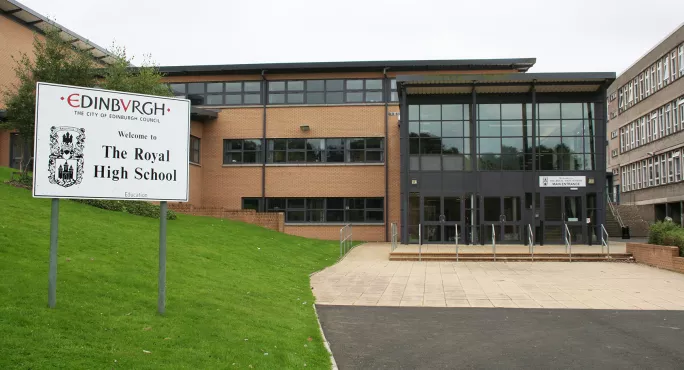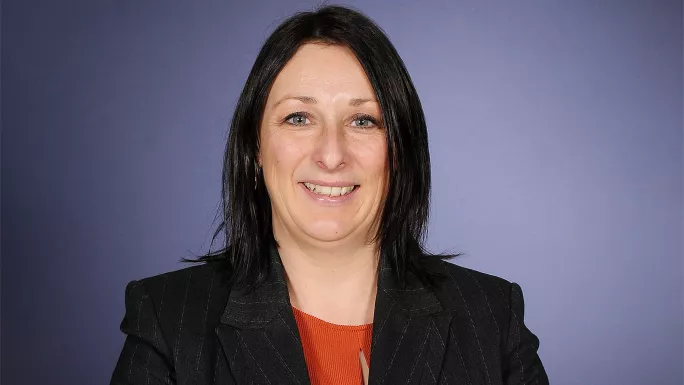- Home
- Leadership
- Strategy
- How one of Scotland’s oldest schools is at the forefront of improvement
How one of Scotland’s oldest schools is at the forefront of improvement

When your school is soon to celebrate its 900th anniversary, it’s all too easy to fall back on traditions and carry on with certain practices just because, as we put it in Scotland, they’ve “aye been”.
So says Pauline Walker, headteacher at the Royal High School - founded in 1128 - in Edinburgh, which this week held an online conference sharing insight into its approaches, soon after the school received an “outstanding” inspection report.
Crucial to that success, believes Walker, is a determination to constantly look for ways to improve - and a resistance to carrying on doing things simply because that’s always been the way.
“Our school can be quite traditional and old-fashioned,” she said at the start of her presentation at Wednesday’s conference, adding: “How do you ensure it doesn’t get lost in that history and tradition?”
At the outset, Walker makes it clear that everything has to come back to a simple statement of intent that appears under the school crest: “We belong here.”

The school has to constantly ask itself if it is living up to that in everything that it does, for each one of its 1,389 students. Walker gives the example of assemblies: do their format and scale have to change, for example, because they are stressful experiences for students with attention deficit hyperactivity disorder or sensory issues? And five years ago, says Walker, there were issues with racial equality in the school - where there are now speakers of 32 different languages - that had to be addressed as a matter of urgency: certain students just didn’t feel that they did belong.
- From the archive: The Royal High School’s focus on student voice
- Interview: 10 questions with... Royal High head Pauline Walker
- This week: Scottish students not ready for return to pre-Covid assessment, say teachers in union survey
- Assessment: AI ‘threat’ prompts SQA reminder of ‘serious’ penalties for plagiarism
- Diversity: How close is Scotland to meeting target for minority-ethnic teachers?
Underpinning this principle of universal belonging is a constant refinement and self-assessment of school values.
As a matter of priority, says Walker, people have to understand a school’s values and students should be “living and breathing” them - empty slogans are of no use to anyone.
Royal High’s values are reviewed annually, and Walker’s attitude is that if that means branded school stationery and signs become obsolete, then so be it.
Close scrutiny of local and national data drawn from “all over the place” is also crucial, says Walker - the school is “very data heavy”, with all sorts of spreadsheets on the go.
Royal High staff - there are 98.4 full-time equivalent teachers and 40 support staff - work closely with cluster primary schools to track pupils’ progress as they journey through their school years. If certain pupils are not doing as well in the senior phase as their performance in the Scottish National Standardised Assessments in primary school would have suggested, then that will be noticed and analysed, promises Walker.
It was found, for example, that surprisingly few students drawn from one primary were going on to further and higher education, so the schools worked together to get to the bottom of that and ultimately put in support from Royal High’s Developing the Young Workforce set-up; similarly, when the literacy and numeracy tails off among students who came from a particular primary, that is explored together by staff at both schools.
Evaluation of progress has to be “very robust” and a school can’t afford to be “woolly” about the targets it sets, stresses Walker, while processes must be subject to “regular improvement checks”. And a school must always be asking itself why it is doing something, says Walker, “otherwise you just become a bit lost in the mire”.
However, school improvement does not take place entirely in-house: Royal High has two partner schools, Dundee’s Grove Academy and Earlston High, in the Borders, that it compares notes with - and there is a mutual understanding that this arrangement is most useful to all if the staff at each school can be frank about where they see shortcomings in the other schools.
The constant process of school improvement, Walker concedes, is “relentless and exhausting”, and for that reason, there must be ample blocks of time built into the working week of senior leadership team staff so that they can do the job properly: “Time is the biggest barrier to change,” she says.
Staff should, for example, be given time to delve into education research and to consider and contribute to the ongoing Hayward review of qualifications and assessment (the final stage of consultation for which closes on Sunday 30 April).
“If all you’re doing is running around the school all week, then you can’t drive improvement,” says Walker, who also says it is important staff have the autonomy to decide where they work best and which areas of improvement they want to focus on.
And improvement cannot be a top-down affair, driven by SLT. Anonymous questionnaires, for example, are used to gauge the views of students who might otherwise be reluctant to speak up.
“We feel that everyone should have the opportunity to speak freely,” says Walker. Feedback from students has, for example, led to more active learning and a greater wealth of careers information in the school.
Another key aspect of improvement at Royal High is a weekly bulletin that updates students’ families every Friday about successes and where changes still need to happen. For school improvement to be truly meaningful, insists Walker, everyone in the school community must feel able to utter the words: “We belong here.”
Register with Tes and you can read two free articles every month plus you'll have access to our range of award-winning newsletters.
topics in this article



